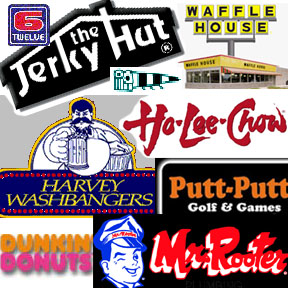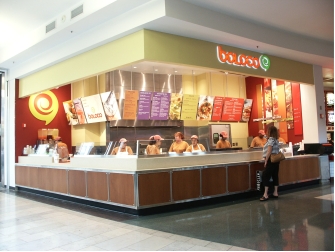
You’ve thought about it for years and you’re finally ready to make the leap into business ownership. It’s time to be your own boss, to be the one in charge of your financial future – your destiny. Because you are a smart woman, you want to avoid making mistakes along the way. You have so many questions: Will you be happy as a franchisee? Can you make the money you need to provide for yourself and your future? What kind of franchise would be best? Where do you start, with thousands of franchise opportunities available?
The simple answer is that you start with YOU.
Before you even begin looking at franchises, you need to do a thorough self-evaluation of your own business style, strengths and challenges. So find a quiet place, get out paper and pen, and as objectively as possible answer the following questions. (And don’t worry; unlike the quiz in Cosmo, “Are you a good friend?” there are no wrong answers!)
What’s Your Personal Business Style?
What part of your current and past jobs have you liked doing the most?
Do you like working with the public or would you rather be involved in a B2B company, helping other businesses to grow?
Are you an outgoing, people person or do you prefer to be behind the scene, managing the business?
Are you willing to ask for help when you need it? One of the benefits of franchising is the ongoing support you will receive but it will do you no good unless you use it.
Describe the work environment that most appeals to you.
Are you status conscious? Does it matter to you what the product or service of the franchise is or does the business potential matter more?
What Are Your Skills and Strengths?
List your skills and evaluate how well you perform each.
How do you feel about sales and marketing? These skills are most often on a franchisor’s list of desired attributes in a potential franchisee.
Are you good a networking? In many cases, a franchise owner’s role will be to make community connections by joining civic organizations and networking with various groups.
What Do You See As Your Challenges?
What part of your current and past jobs have you liked doing the least?
List your weaknesses, those things you would not want to do or would want to hire someone else to do in a business.
What Experience Do You Have In Employee Management?
Do you have experience managing employees? Did you enjoy it?
Are you comfortable recruiting employees?
Do you have the experience and skill needed to create a work environment that will allow you to retain employees?
What Is Your Financial Profile?
How much capital do you have to invest?
Can you afford to do without a regular income during the start up phase of your new business?
What are your financial goals?
How do you see your lifestyle changing as a result of meeting your financial goals?
How do you feel about taking the risk of becoming self-employed?
Are You A Team Player?
Franchising is all about following someone else’s system. Can you picture yourself in this role, executing a system you didn’t create?
Once you have answered these questions, you’ll begin to see a clearer picture of what talents you can bring to a franchise business and what you expect to receive in return. Do you see yourself managing a string of dry cleaning franchises and vacationing in Tahiti ? Or, would your perfect opportunity be to own a mall-based tax preparation service where you could mingle with your customers and have lots of free time to spend with your family?
The next step is to start looking at opportunities and evaluating them based on your answers. It may take some effort to find the right franchise so don’t feel that you need to compromise. Just like jeans, franchise opportunities com e in many shapes and sizes and you never need to settle for one that is just not a great fit. Choosing the franchise opportunity that best matches your needs, interests and style is your greatest assurance of happiness and success as a business owner.
 Kim Ellis is the President of Bison.com, a leading online resource for franchise and business opportunities. She has been quoted as an industry expert in USA Today, Wall Street Journal and a variety of local and regional publications regarding trends in business and franchising. Kim combines her entrepreneurial spirit with a diverse background in marketing and operation to help others succeed in franchising.
Kim Ellis is the President of Bison.com, a leading online resource for franchise and business opportunities. She has been quoted as an industry expert in USA Today, Wall Street Journal and a variety of local and regional publications regarding trends in business and franchising. Kim combines her entrepreneurial spirit with a diverse background in marketing and operation to help others succeed in franchising.
Category: Franchise
Avoid Franchise Mistakes

Entrepreneur: They say that wisdom comes from experience and experience comes from making mistakes. How true. This article intends to help you gain wisdom from the experience of others rather than having to pay the cost of learning from your own mistakes. These mistakes can represent real dollars–and avoiding them can make a big difference in the total investment you need for your new business and ultimately how profitable the business becomes.
Franchise companies will almost certainly have manuals, training programs and other support documents and services designed to help you avoid making costly mistakes. The challenge is that most new franchisees are trying to learn and execute many new things at once and sometimes make what they feel are logical decisions without remembering or consulting all the advice provided by the franchisor.
It’s always a great idea, during your due diligence conversations with existing franchisees in the system, to ask them if they made any expensive mistakes when they were first building or operating their new business. A good form for this question is, “Knowing what you know now, what would you do differently if you got to start all over again in building your business?”
Expensive Mistakes to Avoid as a New Franchisee [Entrepreneur]
Serious Franchise Thoughts

About.com: Buying a franchise is a dream for many aspiring small-business owners.
There are conflicting opinions as to whether franchises tend to be more successful than independent small businesses, but this much is clear: Franchises are expensive to buy, carry the same risks as any startup business and require plenty of sweat equity to make them profitable.
“Buying a franchise is a serious, serious business, and one should contemplate the downside,” says George Naddaff, chairman of the KnowFat! chain of restaurants, who created franchises including Boston Market and Sylvan Learning Centers. “The danger … is that every franchise is a startup.”
Franchising allows entrepreneurs to take advantage of a proven business model and do business under a brand name that already enjoys market recognition and a loyal customer following.
As a franchise owner you will probably get support from your franchisor, which is one advantage over owning an independent business.
Buying a Franchise is Serious Business [About.com]
Johnnie’s Hot Dogs

The Johnnie’s Dog House Franchise is the newest addition to the growing fast-casual restaurant franchises. Over the past three years, Johnnie’s Dog House customers have enjoyed the best hot dogs brought to them from around the world, and a variety of menu selections of “The Foods You Crave!” Their food, coupled with a comfortable-nostalgic atmosphere has made Johnnie’s Dog House a destination restaurant for friends and families of all ages.
With an eye towards the future, Johnnie’s Dog House has developed multiple business formats that compete in the booming fast-casual restaurant business, both locally and nationally. The fast-casual restaurant is a natural fit in Residential Business Districts, Town & Lifestyle Centers, and Beach & Shore Communities. The Fully Self-Contained Mobile Kiosk Solution is well suited to locations such as airports, college campuses, malls, retail outlets, hotels, tourist attractions, shopping centers, transportation centers, and casinos. Starting in August 2007, Johnnie’s Dog House will begin taking franchise applications from their newly re-designed website.
Johnnie’s Dog House
Work From Home

StartupNation: With over 2,500 franchise concepts in the US alone, business owners are finding ways to appeal to investors. And one major way to do that is offer them the benefits of working from home. Several of our clients have perfected the system, including:
At Matco Tools, franchise distributors of automotive tools and diagnostic and service equipment have utilized home based offices for 61 years. Their franchisees utilize a mobile distribution system that features weekly sales and service contacts with pre-identified potential customer in an exclusive area. I’d say Matco has perfected the work-from-home business model.
Another example is FocalPoint Business Coaching. The FocalPoint model requires no inventory and has low operational overhead, while obtaining premium margins for the service your franchise will provide to the clients. A quiet place to work, a computer and phone and you’re set.
And there are dozens more. When you’re considering owning your own business, don’t forget about the franchise opportunities like these and many others that allow you the flexibility and benefit of owning your own business and working from the comfort of your home.
Home Based Franchising [StartupNation]